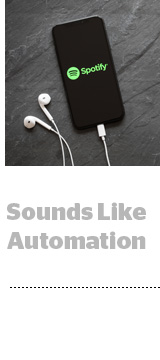
While most of Spotify’s ad-supported revenue comes from direct-sold inventory, its programmatic self-serve platform is growing fast – and now brings in 20% of total ad revenue.
In Q1, Spotify reported that its programmatic revenue grew 94% in 2017 but did not break out a figure.
Spotify launched its self-serve platform, Ad Studio, in the US last September. It’s since rolled out the platform in the UK, Canada, Australia and New Zealand.
“We’re in the very early stages,” Spotify CFO Barry McCarthy said on the call. “If it’s executed well, it will result in an important shift in the overall structure of the business, dramatically expanding margins.”
In Q2, ad-supported revenue at Spotify grew 20% year over year $144 million. Meanwhile, subscription revenue was up 27% year over year to $1.3 billion. Average revenue per user was down 12% year over year and up 4% sequentially to $5.72 due to seasonality trends.
Video is Spotify’s fastest-growing ad unit, but audio remains the largest source of revenue, the company said in a release. And while desktop growth is slow, mobile is growing at a steady clip.
“Increasingly, it’s a mobile-first business,” McCarthy said.
Total revenue at Spotify grew 26% year-over-year to $1.4 billion. Monthly active users grew 30% to 180 million, and premium subscribers grew 40% to 83 million year-over-year.
Post-GDPR confusion caused a slight slowdown in revenue for the quarter of less than $1.2 million, McCarthy said.
“Not everybody was equally prepared … so that caused some fallout,” he said. “Some advertisers sought to use GDPR as an opportunity to leverage renegotiation of data sharing. That friction cleared the market in a couple of weeks.”
Spoken word
While Spotify’s core focus is to get as much music content onto the platform as possible, podcasts are becoming increasingly important.
Spotify CEO Daniel Ek said on the call that podcasts are “growing really, really fast” and will be “a significant portion of what we do.” He did not break out a figure.
“Music is still the vast majority of listening on our platform,” he said. “That said, we’re very encouraged with the growth of podcasts. It’s unclear long-term how big that opportunity is.”
In addition to adding more podcast content, Spotify will continue inking exclusive deals with podcast hosts. In May, the platform announced it would pay comedian Amy Schumer $1 million for the exclusive rights to her podcast.
“In music, we don’t believe in exclusivity,” Ek said. “In podcasts, we do see that marketplace works differently and there is room for exclusivity and original content production. This is probably something you will see us test and experiment with.”
Spotify isn’t the only platform vying to own the podcast space. In March, Pandora acquired digital audio ad tech platform AdsWizz and its programmatic podcast exchange, PodWave, and has been steadily adding non-music content to its platform.
Meanwhile, Google launched a standalone podcast app for Android in June, and radio giants iHeartRadio and NPR are after a piece of the pie as well.
“Everybody in the industry is trying to figure it out,” Ek said. “But we’re of the belief it’s going to be a significant portion of what we do, so we’re investing to make the product better and drive more listeners on our platform.”
This post was syndicated from Ad Exchanger.


More Stories
Sinclair SVP of Station Operations to Retire in June
Netflix Sets Up Killer You Marketing Activation With Penn Badgley
5 Ways Brands Can Weather a Tariff Storm as Consumer Spending Shifts Toward Value